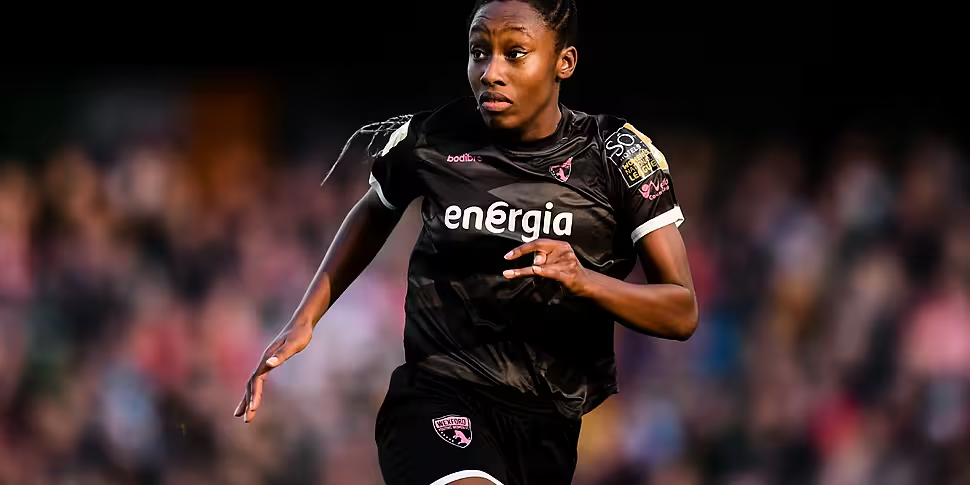From the Democratic Republic of Congo to Dundalk, from Nigeria to Waterford, a new cohort of first and second-generation immigrants stand at the forefront of an explosion of talent for Irish football.
Written by – Brian O’Connor, Daniel McCabe, Jonathan Finlay
As a 10-year-old boy living in Direct Provision, Lido Lotefa used to watch professional footballers train on a pitch in Mosney.
Nine years later, at 19, he was part of Dundalk’s first-team squad that won the Premier Division.
Lotefa, who spent the latter half of last season on loan with Longford Town, said his time in Direct Provision, fuels his football career.
He said: “For me, it’s like a force that pushes me on, you know, because I broke a barrier, let’s say that hasn’t been broken, for me and the people I know coming out of Direct Provision.
“No one has come out of Direct Provision and went straight to the top on their first pro deal, and I take that with great pride,” he says.
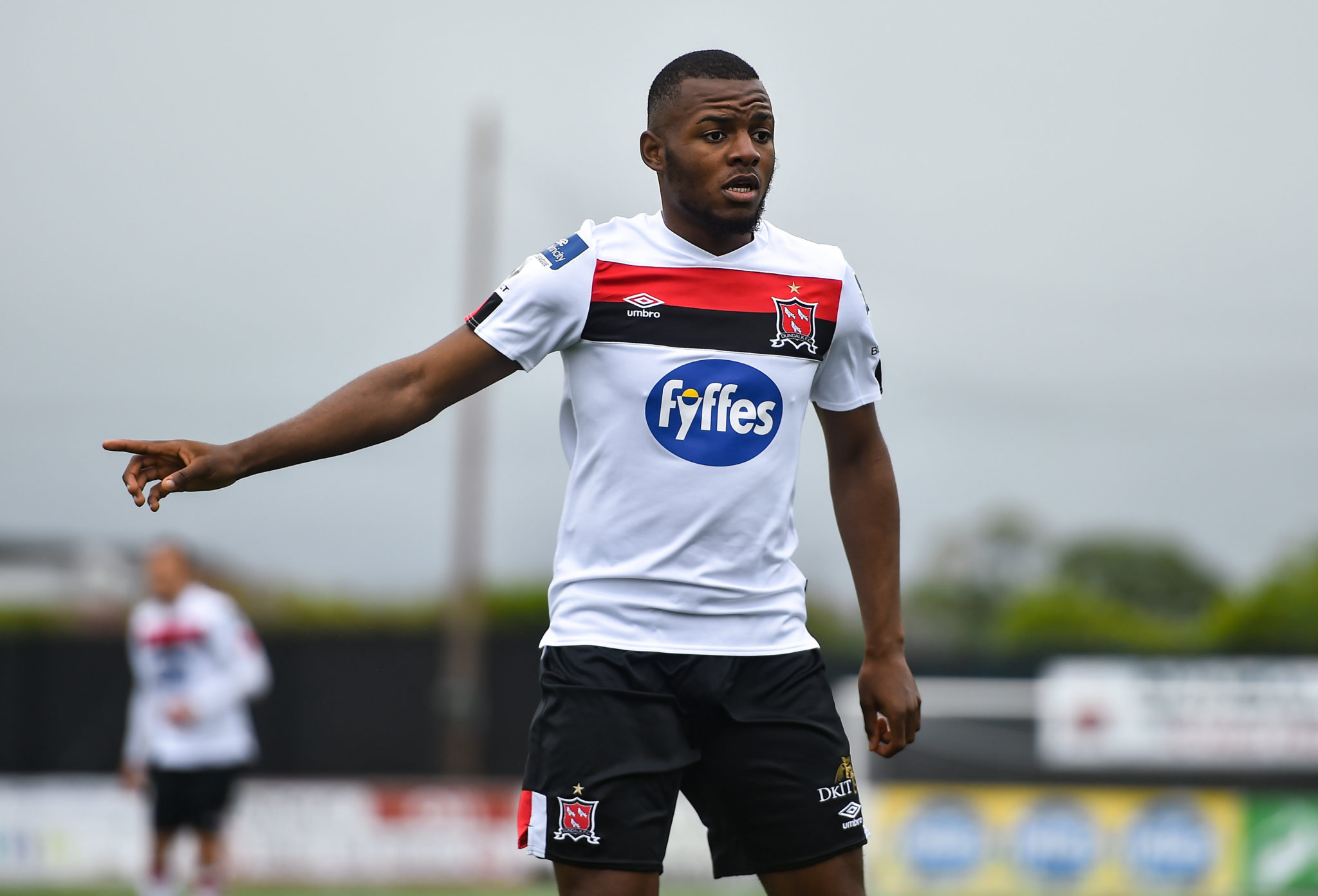 3 July 2020; Lido Lotefa during a Dundalk training match at Oriel Park in Dundalk, Louth. Photo by Ben McShane/Sportsfile
3 July 2020; Lido Lotefa during a Dundalk training match at Oriel Park in Dundalk, Louth. Photo by Ben McShane/SportsfileLotefa is one of several rising stars of Irish soccer who are first or second-generation immigrants, a cohort of players that represent a new well of talent for domestic leagues and Irish national sides.
He is one of the approximately 21% of the total population of professional players in the country, according to the FAI, that have family origins outside of Ireland.
Des Tomlinson, Intercultural Football Coordinator at the FAI, is keenly aware of how players like Lido enrich the domestic scene in Ireland.
“It is important that football is an open platform’ he says. “Players with different cultural backgrounds bring a new style of football and ideas as to how the game should be played and that's great.”
Lotefa had an arduous journey to the premier division. With his family, he fled war-torn Democratic Republic of Congo and settled in Ireland aged five.
Lotefa first settled in Killarney, and then Mosney, the State's largest Direct Provision centre.
Football proved to be a form of escapism for Lotefa and the other asylum seekers at Mosney, who set up a football team “just to compete in the outside world, whoever it may be against.”
"The team had some success in that they were “actually whipping a few people”, Lido recalled.
Lotefa’s footballing talent took him to the reputable St. Kevin’s Boys, but he said he felt like an outsider.
“Even when teachers were asking you where you’re living, you’re not actually saying an address” he remembered.
“I would always try and avoid that type of topic but, as I grew up I thought, ‘there’s nothing to hide, this is me’... I stopped hiding the fact that I lived in Mosney and started embracing it”.
Thanks to his impressive performances at St.Kevin’s, the young striker caught the attention of a number of scouts.
After being denied the opportunity to board a flight for a proposed trial with Coventry, for being too young to fly unaccompanied, Lotefa joined Bohemians U17s, where he scored 18 goals in his first season at the club.
A year later he found a new home at Oriel Park where he worked his way through the underage system before being called up to the starting XI by manager at the time, Stephen Kenny.
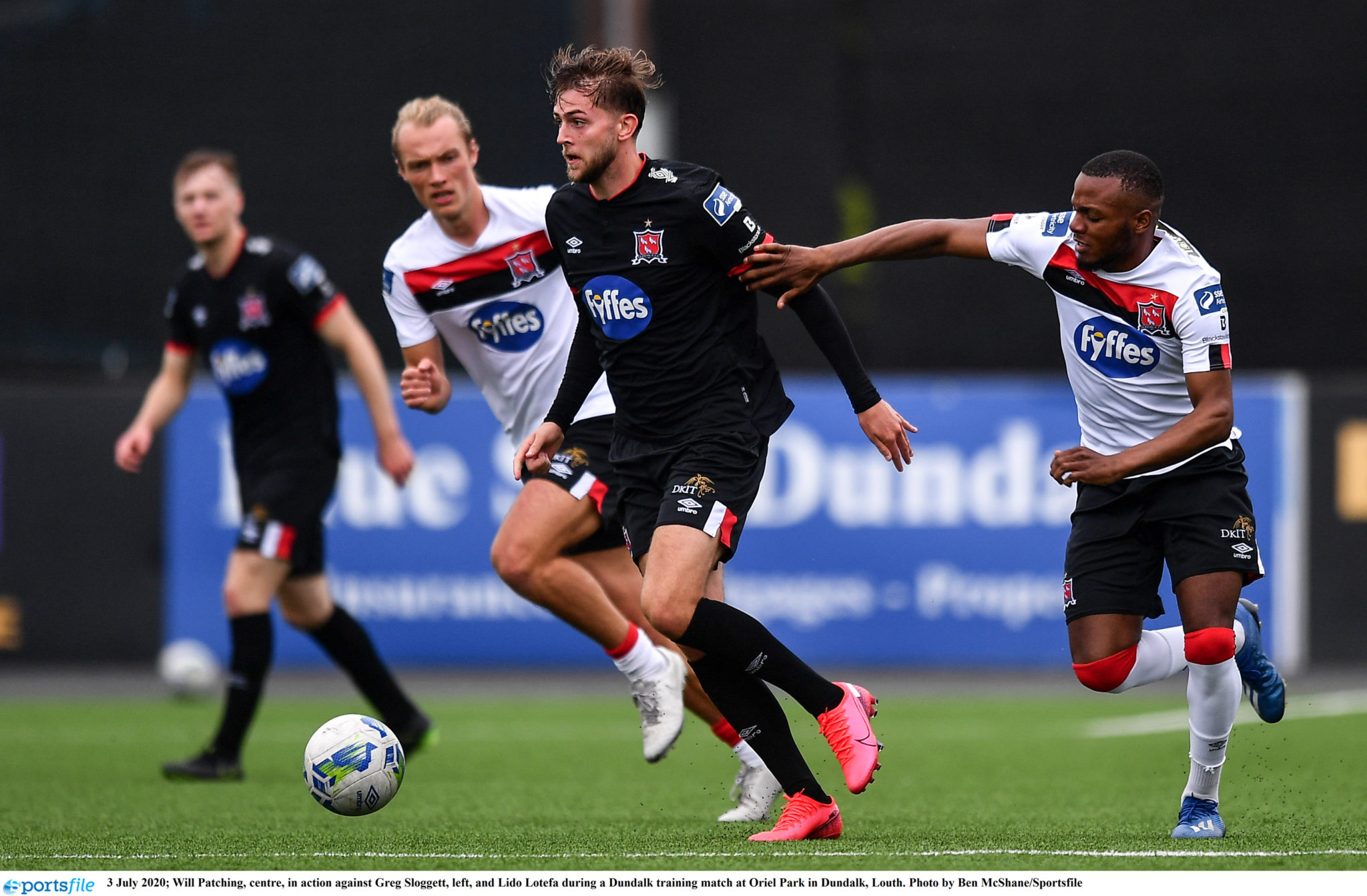 Photo by Ben McShane/Sportsfile
Photo by Ben McShane/SportsfileLotefa said he wants his career to be an example to younger footballers who have similar ambitions to him, recalling his time watching footballers train in Mosney.
He said: “I wish to inspire the young people to keep dreaming, because, at the time, Drogheda United were training in Mosney, because there’s a huge football field there, and we’d always look at the players.”
“Funnily enough, Gary Rogers was one of the players there, so I was a 10-year-old kid looking on at Gary Rogers and today we share the same dressing room.
"That’s just crazy to me, like who would have thought, life works in mysterious ways. I just want to tell kids to keep dreaming, anything is possible.
And if your background can add that little boost to why you play, let it drive you on.”
The concept of immigrants and children of immigrants enriching football in Ireland isn't entirely new.
Eamon Zayed, who is of Irish-Libyan descent, had a huge impact on the league playing for a number of top-flight Irish clubs since 2002 including Drogheda United and Sligo Rovers.
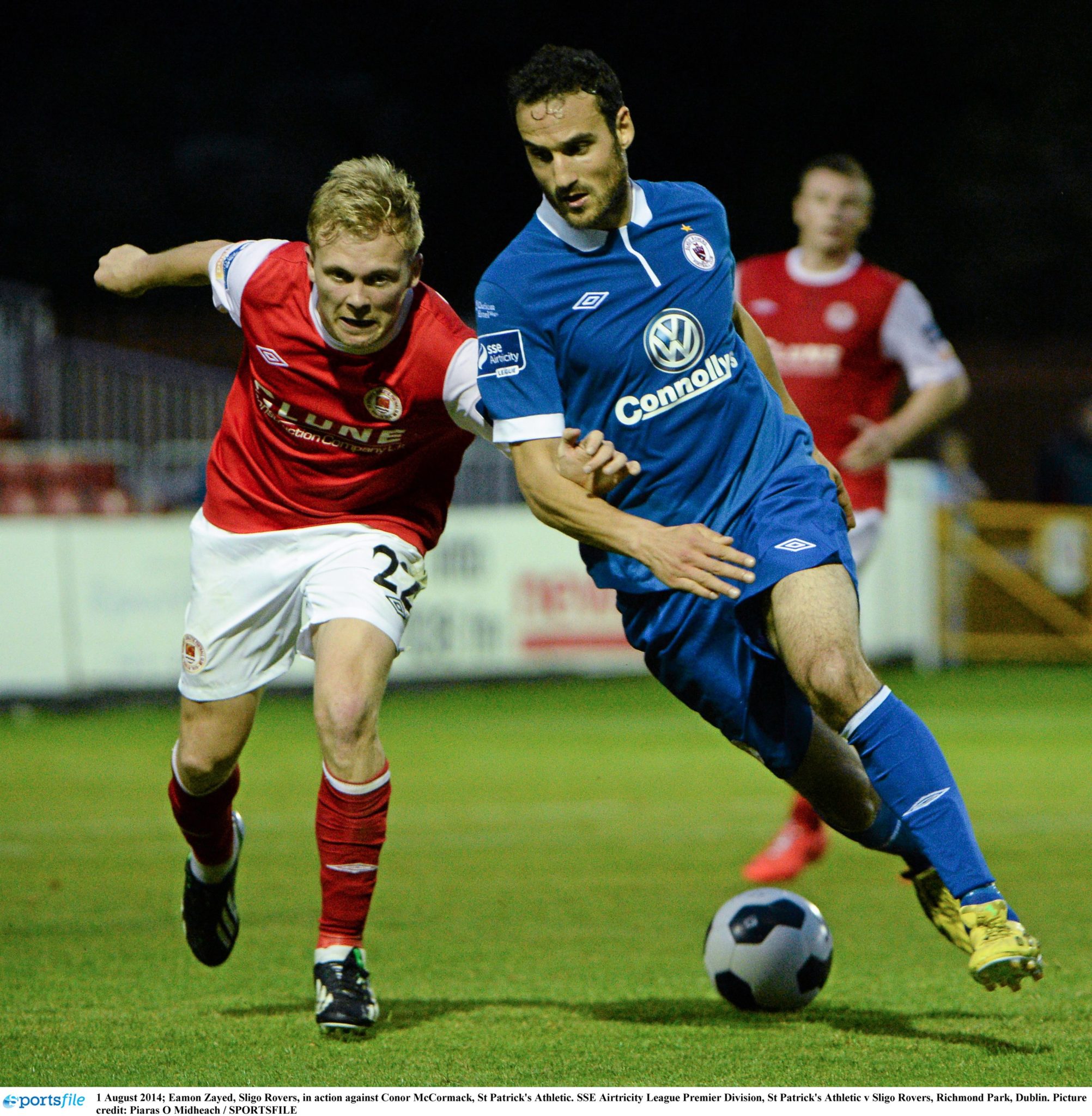 Piaras Ó Mídheach / SPORTSFILE
Piaras Ó Mídheach / SPORTSFILESimilarly, Roberto Lopes, of Cape Verdean descent, has made a total of 239 appearances for Bohemians and Shamrock Rovers during his 10-year career and last month was voted onto the PFAI team of the year.
While this has always been the case, Ireland has become increasingly diverse year on year and, as a result, so has its football.
Many young rising stars in domestic leagues were born in Ireland thanks to the migration journey taken by their parents before their birth.
Blessing Kingsley, 18, an upcoming star in the Women's National League, was born in Ireland after her mother moved from Nigeria to Waterford when she was 17.
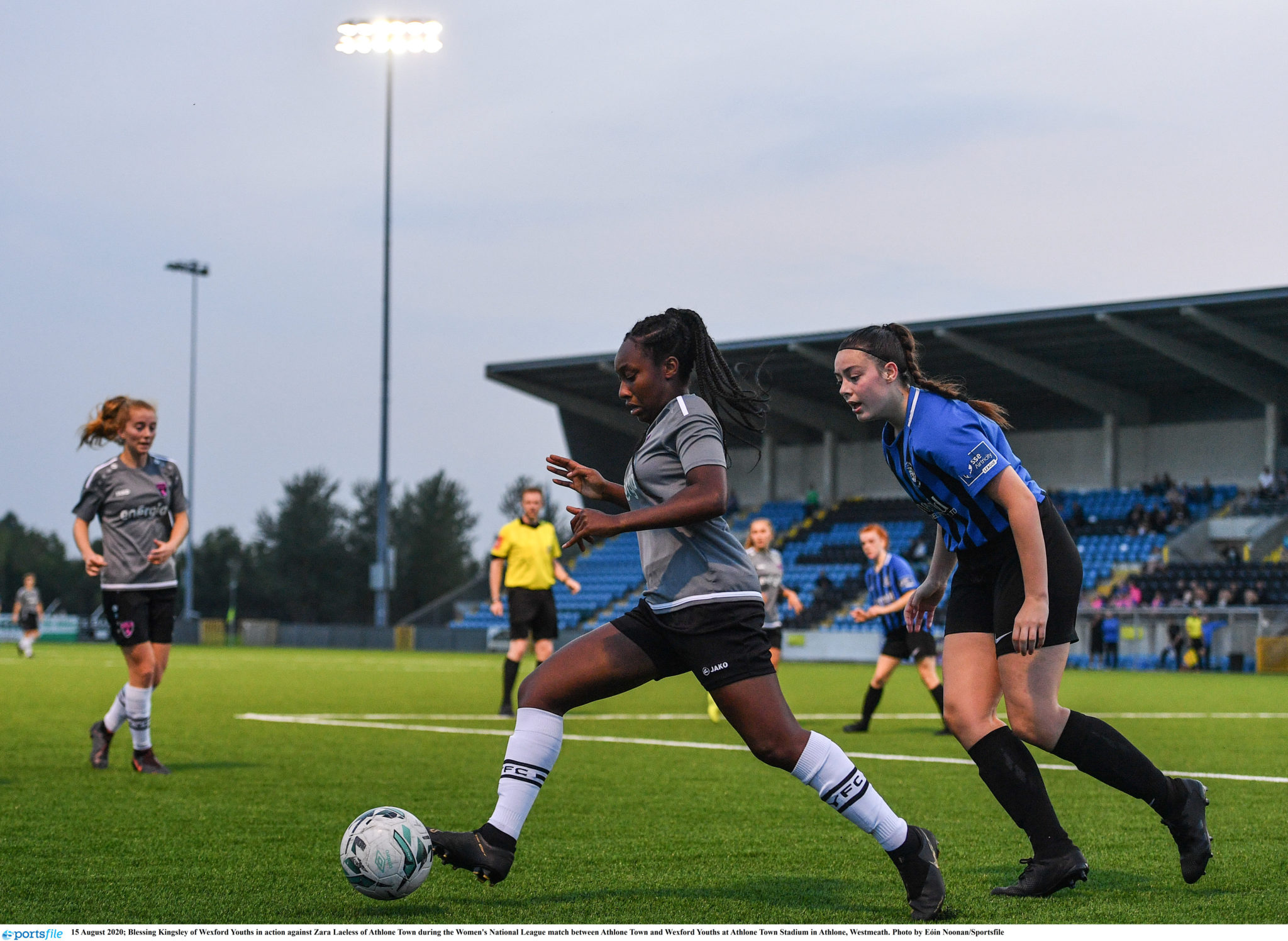 Photo by Eóin Noonan/Sportsfile
Photo by Eóin Noonan/SportsfileShe remembers the struggles her mother faced to raise her and her sister.
She said: “The things she has been through and how she just restarted her life at such a young age.
"To pick yourself up and keep herself on her two feet and have a roof over our heads is absolutely amazing.
"In the past four years, she's lost both of her parents, but she doesn't let that phase her. She is just so strong,” she says.
“I wouldn’t trade her for the world”
Kingsley had an unorthodox beginning to her footballing career, as her first competitive team was her local boys club, New Oak Boys, which she joined at the age of 11.
Blessing spent three years at the club before joining her first girls’ side, Hanover Harps in Carlow.
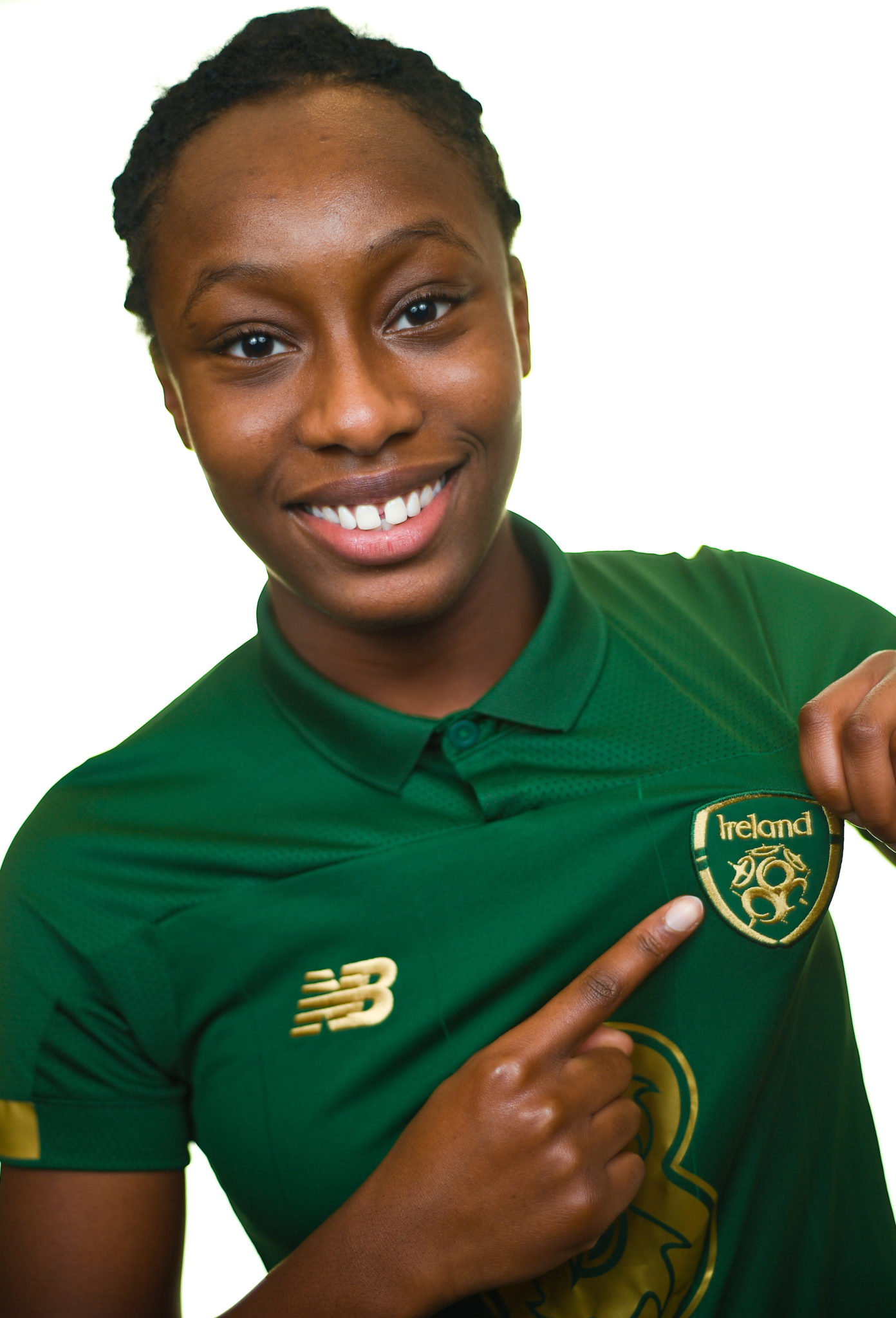 Photo by Eóin Noonan/Sportsfile
Photo by Eóin Noonan/SportsfileWith her talent becoming increasingly evident she began her transition into the Women's National League in 2018 with a move to Wexford Youths. The attacker went on to feature in their FAI Cup Final win in the Aviva Stadium last November.
She has recently received a scholarship to spend the next four years playing football and studying at the University of Southern Mississippi.
Having already received a number of caps at underage level for the Irish National team Kingsley is hopeful that, following her four years in America, she can break into the Senior Women's side.
As a young, black female playing football in Ireland, Kingsley believes a diversity of players at the highest levels is needed if players from immigrant backgrounds are to thrive within the domestic league.
She said: “For black girls that want to play football, in our culture it's still very old fashioned and archaic. You learn how to cook and clean and find a husband. It's not really that way anymore but there are still elements of it.
"It's hard enough that we have that old fashioned way in the households and then on top of that, you don't really see many girls that look like you playing football.
It's so hard for young girls to have a dream and to be motivated if they don't see other girls that look like them in the room you know?”
Irish football has also benefited from arrivals from European countries.
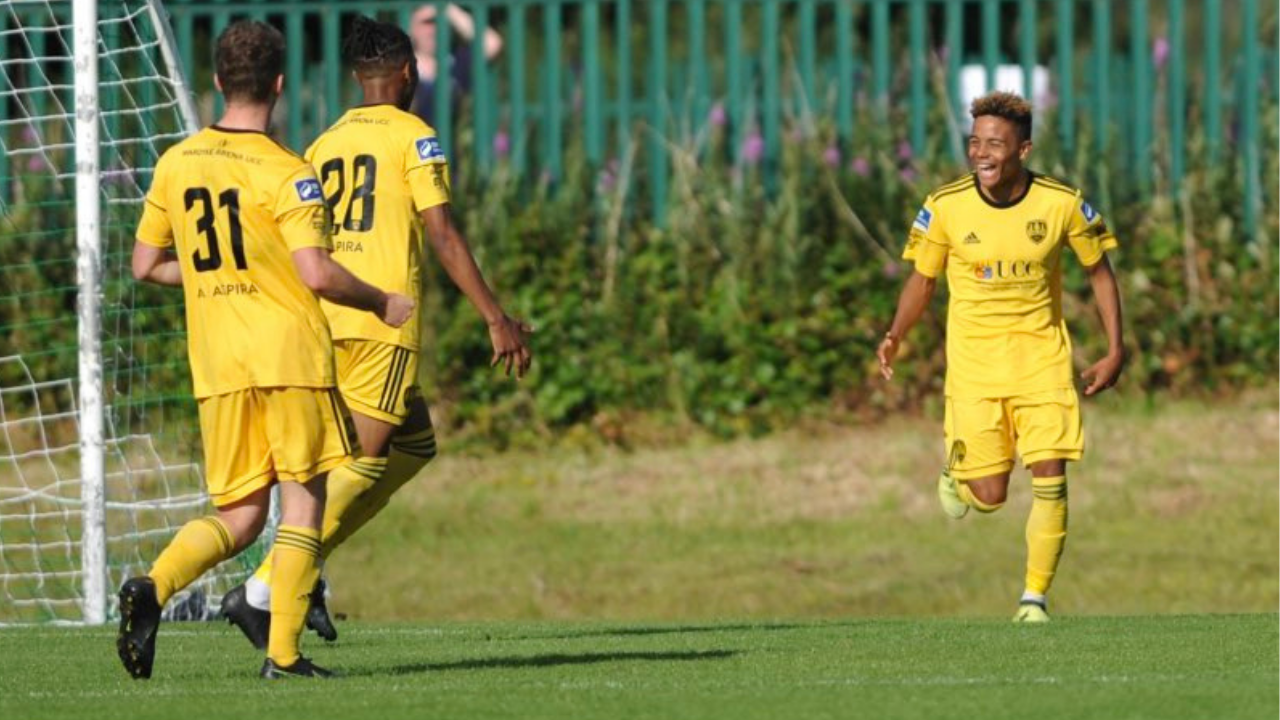
English-born Issa Kargbo is a 19-year-old winger currently playing his football for Cork City, having represented the club throughout his underage career which began at the age of 11.
Kargbo grew up in Manchester with his twin brother Uniss, who is also an emerging regular in the Cork City starting 11.
Their father, Issa Kargbo Sr, an ex-professional footballer hailing from Sierra Leone, made the decision to move the boys to Cork at the age of 10 in order to provide them with a better environment in which to grow up.
Kargbo said: “I left because of school, I wasn't doing well, and it was a rough neighbourhood. I came here in 2010 because my Mum was getting fed up and there were social workers involved and that, so my Dad said ‘right, send him to Ireland’.
“My dad was a footballer himself, he played for Doncaster Rovers and he was on trial with Cork City, and so he said ‘we need to get him into football’ so I started in 2010.”
It was from here that the Manchester-born boys found their local club, Ringmahon Rangers FC, boyhood club of current Ireland international Alan Browne and Liverpool’s young goalkeeper Caoimhín Kelleher.
Since then the Kargbo brothers have become a mainstay in the Cork City FC set up in both underage and senior competitions.
However, according to Issa, he and his brother are fierce competitors who motivate each other.
“Let's say if I had a late-night or I was training late at night and he had a free day the next day, then he’d go out the next morning and he’d train and that would obviously make me want to go out and train.
"Say, even, if we’re doing push-ups and I do 20, he’ll have to do 21, we just keep at each other.”
The FAI Intercultural Programme was established by Paul McGrath in 2007, and within the association- there is the hope that it will play an integral role in nurturing this new batch of talent.
The programme aims to encourage increased participation in football among people from ethnic minority and cultural backgrounds.
Something that can only have a positive impact on Irish society, Irish culture and Irish football.
Download the brand new GoLoud App in the Play Store & App Store right now! We've got you covered!
Subscribe to OffTheBall's YouTube channel for more videos, like us on Facebook or follow us on Twitter for the latest sporting news and content.

